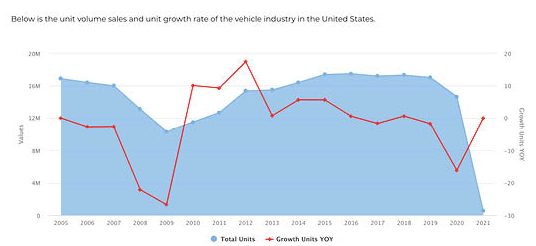You can see from the chart, which shows total sales in the blue area, that auto sales were falling even before the pandemic recession—although the chart looks more alarming than it should, because the 2021 drop only reflects one quarter of sales. The red line shows that sales are recovering somewhat, but from an unfortunate decline. The strong suggestion: despite what you may hear from the pundits, the U.S. economy is not very healthy.











